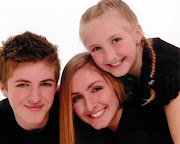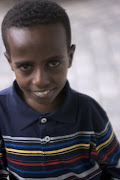http://www.rd.com/your-america-inspiring-people-and-stories/dr
-rick-hodes-helps-the-children-of-ethiopia/article104652.html
In Ethiopia, there is one doctor for every 40,000 people and never enough medicine. In a nation with a per capita income of $220, modern treatment is reserved largely for the rich. But at Mother Teresa's Mission, Rick Hodes, MD, devotes himself to healing the poor.
If his patients require sophisticated medication, he hunts it down. He arranges free surgeries abroad. He moves kids who need special care into his own modest home (three bedrooms inside, three in an outbuilding) or another that he rents nearby. "Whenever half a mattress is free," he says, "I take in someone new." Some are abandoned kids who live on the streets; others come from families who can't feed them. In addition to providing medical treatment, he oversees the children's education, lining up donors to pay for both.
Most striking of all, Hodes, who is single, has adopted five Ethiopian children, the maximum allowed. He started in 2001 to put two orphans—Semegn, now 19, and Dejene, 15—on his insurance plan so they could have surgery in Texas. "It was kind of a scary decision, so I thought about it for a few days," Hodes recalls. "The answer that came to me was, God is offering you an opportunity to help these boys. Don't say no."
A specialist in cancer, heart disease, and spinal conditions, Hodes first went to Ethiopia as a relief worker during the 1984 famine. He returned there on a Fulbright fellowship and in 1990 was hired by the American Jewish Joint Distribution Committee (JDC), a humanitarian group, as medical director for the country, overseeing the health of Ethiopian Jews who planned to immigrate to Israel. He discovered Mother Teresa's Mission while searching for a teenager he'd been treating for heart disease. When the boy disappeared from the hospital because he couldn't pay, Hodes tracked him down at the mission. Hodes became a volunteer and was soon spending as much time there as at his salaried job.
Until two years ago, he financed his mission work out of his paycheck or by begging aid wherever he could find it. Now the JDC helps with fund-raising, but Hodes still digs into his own pocket when a patient needs bus fare or a meal. He buys shoe polish for boys who support themselves by shining shoes. He pays the rent for a widow whose daughter is undergoing multiple spine surgeries.
"Rick could have done very well for himself practicing in the United States, but he chose to do something so much harder," says Irving Fish, MD, director of pediatric neurology at New York University Medical School, who visited the mission recently. "He's totally selfless. I've really never met anyone like him."
Hodes does without comforts most Americans take for granted, like hot water and reliable electricity. He has all but given up on finding a partner with whom to share his life and work. But to him, these aren't sacrifices. To quote his favorite passage from the Talmud, an ancient book of Jewish law: "Saving one life is like saving an entire world."




0 comments:
Post a Comment